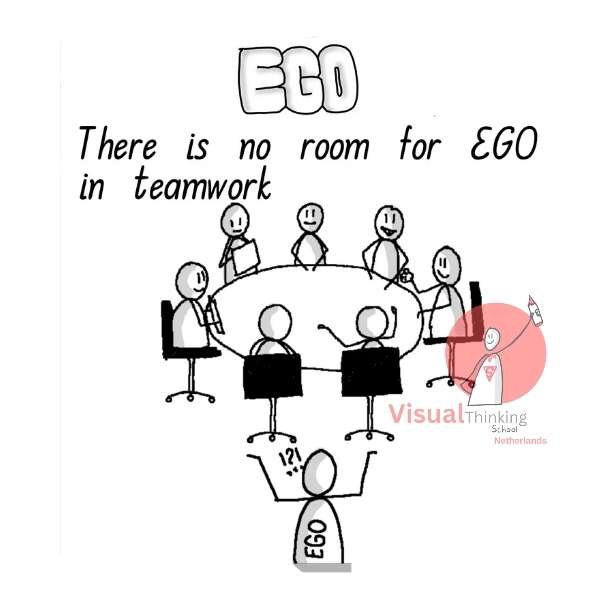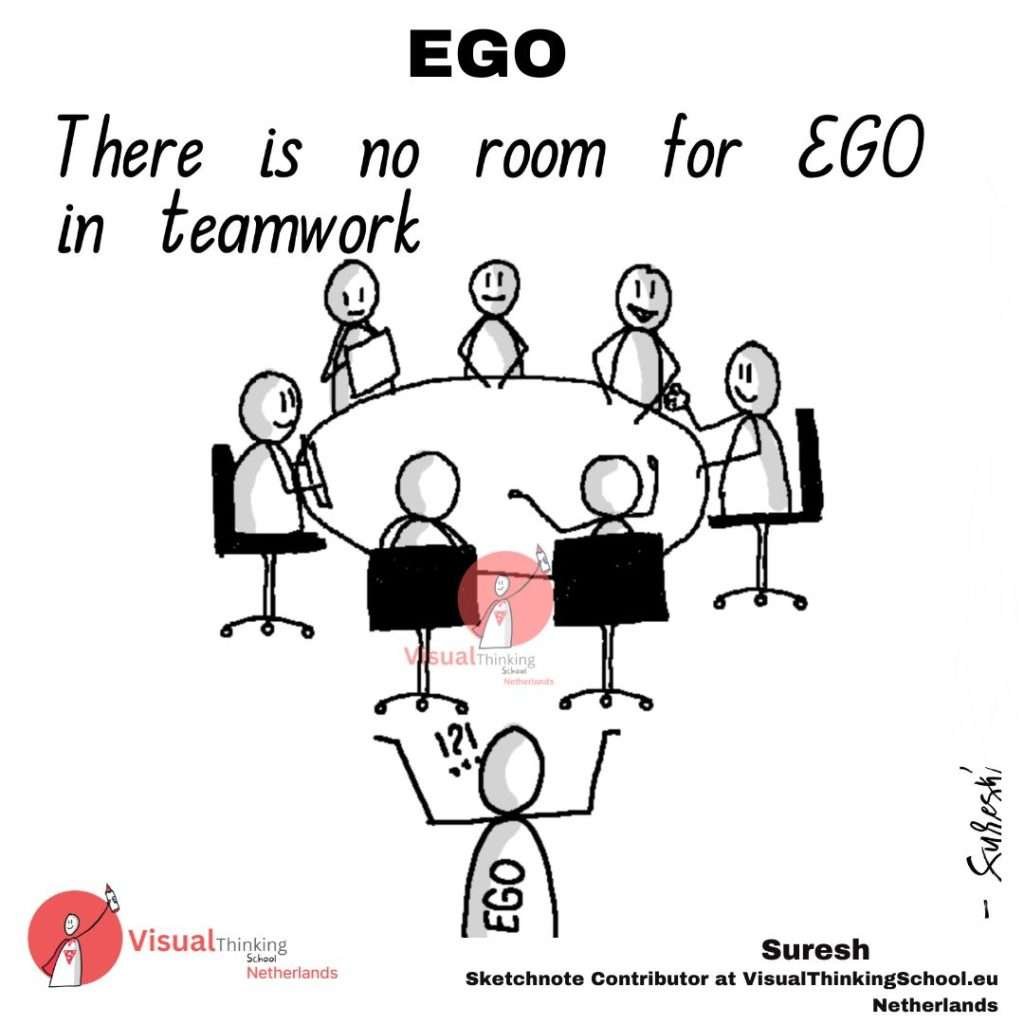

In today’s interconnected world, effective teamwork is crucial to achieving success in almost any endeavor. From corporate settings to sports teams, the ability to work harmoniously with others can often determine the difference between success and failure. The image provided offers a profound insight: “There is no room for EGO in teamwork.” This statement underscores a critical truth about collaboration and the role that personal ego plays in either fostering or hindering team dynamics. Let’s explore this concept in detail and understand why ego can be detrimental to teamwork and how to cultivate an ego-free environment for the betterment of all involved.
Ego, in the context of teamwork, refers to an individual’s sense of self-importance that can lead to a desire to dominate, control, or seek recognition at the expense of the team’s goals. While a healthy level of self-esteem and confidence is necessary, an inflated ego can cause numerous problems within a team setting.
Creating an ego-free team environment is essential for fostering collaboration, innovation, and productivity. Here are some of the key benefits:
To cultivate an ego-free team environment, it’s essential to implement strategies that promote humility, respect, and collaboration. Here are some effective approaches:
Promote a Shared Vision
Clearly communicate the team’s goals and ensure that everyone understands their role in achieving them. Emphasize the importance of collective success over individual accolades.
Encourage Open Communication
Create an environment where team members feel safe to express their ideas and opinions. Encourage active listening and respectful dialogue.
Foster a Culture of Humility –
Lead by example. Managers and team leaders should demonstrate humility by admitting mistakes, seeking input from others, and giving credit where it’s due.
Provide Constructive Feedback–
Offer feedback that focuses on behaviors and outcomes rather than personal attributes. Encourage a growth mindset by framing feedback as opportunities for improvement.
Recognize and Reward Team Efforts –
Acknowledge the contributions of the entire team rather than singling out individuals. Celebrate collective achievements to reinforce the value of teamwork.
Develop Emotional Intelligence–
Encourage team members to develop emotional intelligence skills, such as self-awareness, empathy, and self-regulation. These skills are crucial for managing ego and fostering positive interactions.
To illustrate the power of ego-free teamwork, let’s look at some real-world examples:
Leadership plays a pivotal role in shaping team dynamics and fostering an ego-free environment. Effective leaders understand the importance of humility and lead by example. Here are some ways leaders can minimize ego within their teams:

In conclusion, there is no room for ego in teamwork. An ego-driven approach can hinder communication, collaboration, and decision-making, ultimately undermining the team’s success. By fostering an ego-free environment, teams can enhance communication, increase trust and cohesion, encourage innovation, and improve morale and satisfaction. By promoting a shared vision, encouraging open communication, fostering a culture of humility, providing constructive feedback, recognizing team efforts, and developing emotional intelligence, teams can minimize the influence of ego and achieve greater success. In a world where collaboration is increasingly essential, the ability to work effectively with others is a critical skill. By embracing the principle that there is no room for ego in teamwork, we can build stronger, more cohesive teams that are capable of achieving extraordinary results. Let’s commit to putting the team first and creating an environment where everyone can thrive.
We conduct online and in-person certification trainings on our Trade Marked Training on Business Sketchnotes ™.
We have an open challenge in our trainings : If you can not draw after our 9 hours of trainings, we will close our trainings FOR EVER !! ..and we are still waiting for that one person even after training more than 38000 professionals.
You can also join our whatsapp community to learn from those who have attended our trainings

We trained more than 38000 professional and gave corporate trainings in more than 65+ top notch companies

Check Our Trainings